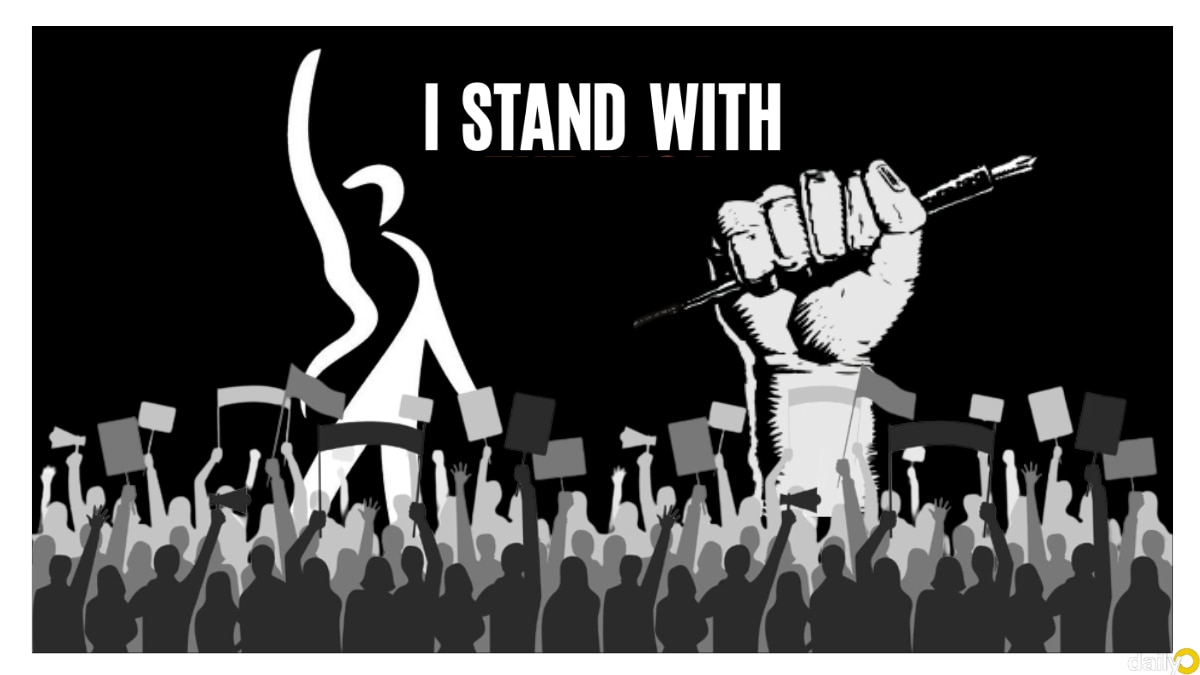Hollywood At A Standstill: The Joint Actors And Writers Strike

Table of Contents
The Core Demands of the WGA and SAG-AFTRA
The Hollywood strike isn't just about pay; it's about a fundamental shift in the power dynamic within the entertainment industry. Both the WGA and SAG-AFTRA are fighting for significant changes to address the challenges brought on by the streaming era and the rise of artificial intelligence.
Fair Compensation and Residuals in the Streaming Era
The transition from traditional television models to streaming platforms has dramatically altered the compensation landscape for writers and actors. While streaming services generate billions in profits, the compensation structures haven't kept pace, leaving many creatives struggling to make a living.
- Lack of transparency in streaming revenue: The opaque nature of streaming profits makes it difficult to negotiate fair deals. The actual revenue generated by a show is often kept secret from the creators.
- Diminished residuals for streaming shows compared to traditional TV: The traditional system of residuals, which provided ongoing payments to writers and actors based on reruns and syndication, has been significantly diminished in the streaming model. Many streaming deals offer upfront payments with little to no residuals.
- Demand for a fairer share of streaming profits: Both the WGA and SAG-AFTRA are demanding a more equitable share of the profits generated by streaming platforms, reflecting the value of their creative contributions.
Addressing the Rise of AI in Entertainment
The rapid advancement of artificial intelligence poses a significant threat to the livelihoods of writers and actors. The potential for AI to replace human creativity and talent is a major concern.
- Concerns about AI-generated scripts: The use of AI to generate scripts raises concerns about the devaluation of human writers and the potential for lower quality content.
- Use of AI for deepfakes and impersonation: The technology for creating deepfakes and AI-generated impersonations of actors presents serious ethical and legal issues, impacting actors' rights and potentially damaging their careers.
- Demand for regulations on AI usage in the entertainment industry: Both unions are pushing for regulations and safeguards to protect against the misuse of AI and to ensure that human creatives receive appropriate compensation when AI is involved in the creative process.
Improving Working Conditions
Beyond compensation, the strike also addresses long-standing issues concerning working conditions in the entertainment industry.
- Minimum crew sizes: The demand for minimum crew sizes ensures adequate support for productions, preventing overwork and promoting safety.
- Adequate rest periods between filming days: The grueling schedules often faced by actors and crew members necessitate adequate rest periods to prevent burnout and maintain safety.
- Improved health insurance benefits: Access to affordable and comprehensive health insurance is a critical demand, ensuring the wellbeing of all those involved in the industry.
- Fair treatment of background actors: Background actors, often overlooked, deserve fair compensation and working conditions, recognizing their vital contribution to film and television productions.
The Broader Impact of the Hollywood Strike
The Hollywood strike's impact extends far beyond the actors and writers themselves, rippling through the entire economy and impacting countless individuals and businesses.
Economic Consequences
The strike's economic consequences are substantial and widespread.
- Job losses in related industries (catering, transportation, etc.): The halt in production directly impacts businesses that rely on the film and television industry.
- Delays in film and television production: Numerous projects have been delayed, pushing back release dates and impacting production schedules for months to come.
- Impact on tourism in filming locations: The closure of film sets impacts local economies reliant on tourism related to film production.
The Impact on Upcoming Film and Television Releases
The strike has already caused significant disruptions to the entertainment calendar.
- Delayed film releases: Many highly anticipated films have been delayed, impacting box office revenue and studio profits.
- Postponed television seasons: Television series have had their seasons delayed, impacting viewing schedules and streaming platforms' content pipelines.
- Changes to marketing and promotional schedules: The lack of promotional material due to the strike affects the marketing and launch strategies for upcoming projects.
The Public's Perspective and Support for the Strike
Public opinion has largely been supportive of the strike, recognizing the validity of the writers' and actors' demands.
- Public support for fair compensation: Many understand the need for fair compensation in the face of increasing profits for streaming services.
- Social media campaigns in support of the strike: Social media has been instrumental in raising awareness and demonstrating public support.
- Potential shift in audience viewing habits: The strike could lead to a re-evaluation of viewing habits and a greater appreciation for the creative process behind the entertainment we consume.
Conclusion
The joint Hollywood strike, encompassing both writers and actors, represents a critical turning point in the entertainment industry. The core issues of fair compensation in the streaming era, responsible AI integration, and improved working conditions are not merely demands; they are essential for the long-term health and sustainability of the industry. The strike’s far-reaching consequences highlight the urgent need for meaningful dialogue and a resolution that directly addresses the concerns of the WGA and SAG-AFTRA. Understanding the complexities of this Hollywood strike is vital for comprehending the evolving landscape of film and television. Stay informed about the ongoing actors strike and writers strike developments to better understand the future of filmmaking and television. Follow the news closely to see how this major film industry strike unfolds and impacts your favorite shows and movies.

Featured Posts
-
 Haaland Surpasses Shearer And Cantona Fastest To 100 Epl Goal Involvements
May 19, 2025
Haaland Surpasses Shearer And Cantona Fastest To 100 Epl Goal Involvements
May 19, 2025 -
 Burns Vs Morales Complete Ufc Vegas 106 Fight Card Date Time And Venue
May 19, 2025
Burns Vs Morales Complete Ufc Vegas 106 Fight Card Date Time And Venue
May 19, 2025 -
 Tonawanda Employee Faces Drug Charges After Allegedly Supplying Coworker
May 19, 2025
Tonawanda Employee Faces Drug Charges After Allegedly Supplying Coworker
May 19, 2025 -
 Muere Joan Aguilera El Primer Espanol En Ganar Un Masters 1000 Nos Deja
May 19, 2025
Muere Joan Aguilera El Primer Espanol En Ganar Un Masters 1000 Nos Deja
May 19, 2025 -
 Royal Mail Calls For Reduced Ofcom Regulation
May 19, 2025
Royal Mail Calls For Reduced Ofcom Regulation
May 19, 2025
